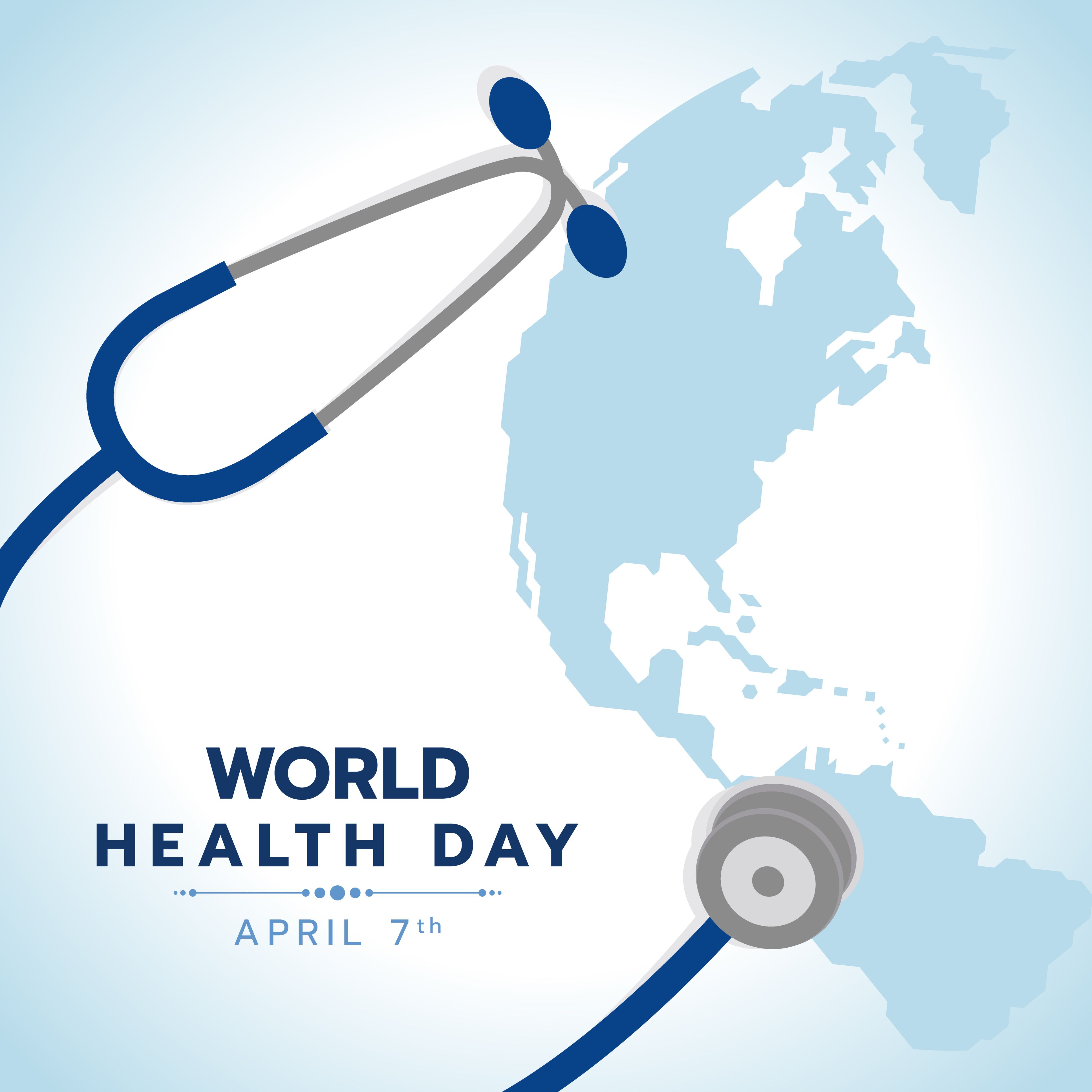World Health Day: Why It Matters and What You Should Know
Learn about the history of World Health Day and check out 10 facts on global health from the World Health Organization and others.
By
Patrick Campbell
| Published on April 7, 2025
5 min read
Credit: Adobe Stock

Every year on April 7, the world marks World Health Day — a day dedicated to raising awareness about global health issues and promoting healthier living for all people.
The History of World Health Day
World Health Day was first celebrated in 1950. The date was chosen to mark the founding of the World Health Organization (WHO) in 1948. Each year, the WHO selects a theme that highlights a specific health challenge or priority. Past themes have focused on mental health, universal health care and climate change. The theme for 2025 is “Healthy beginnings, hopeful futures.”
Why World Health Day Is Important
Global health is everyone’s responsibility. While health care systems vary from country to country, issues like chronic disease, infectious outbreaks and mental health challenges affect people worldwide. World Health Day reminds us that good health isn’t just about medical care — it’s about prevention, education, and addressing social factors like clean water, nutrition and safe housing.
This day also brings attention to health inequalities, urging world leaders and communities to close gaps in access to health care.
10 Health Facts for World Health Day
- Heart disease is the world’s leading cause of death. According to the WHO, cardiovascular disease claims about 17.9 million lives each year.
- One in three adults worldwide has high blood pressure. Hypertension often has no symptoms but increases the risk of heart attack, stroke and kidney disease.
- Depression is a leading cause of disability globally. Around 280 million people suffer from depression, yet many go untreated due to stigma or lack of resources.
- Diabetes affects more than 537 million adults worldwide. This number is projected to rise to 643 million by 2030.
- Smoking kills more than 8 million people each year. Tobacco use remains one of the biggest preventable causes of death.
- Obesity rates have tripled since 1975. Over 1.9 billion adults were overweight in 2016; of these, 650 million were obese.
- Access to clean water saves lives. Yet, 2.2 billion people globally lack safely managed drinking water services.
- Vaccination prevents 3.5 million to 5 million deaths every year. Vaccines are one of the most cost-effective health interventions in history.
- Cancer is a growing global health challenge. In 2020, there were 19.3 million new cancer cases and almost 10 million deaths from cancer worldwide.
- Physical inactivity contributes to one in 10 premature deaths. Regular movement — even walking — reduces the risk of many diseases.
Final Thought
World Health Day is more than a date on the calendar — it’s a call to action. Health isn’t just about hospitals or medications. It’s about daily habits, prevention and policies that protect the most vulnerable. Use this day to check in on your own health and support efforts that promote wellness in your community.
Sources for the 10 Health Facts:
- Heart disease is the world’s leading cause of death.
Source: World Health Organization. Cardiovascular Diseases (CVDs). 2023.
https://www.who.int/news-room/fact-sheets/detail/cardiovascular-diseases-(cvds) - One in three adults worldwide has high blood pressure.
Source: World Health Organization. Hypertension. 2023.
https://www.who.int/news-room/fact-sheets/detail/hypertension - Depression is a leading cause of disability globally.
Source: World Health Organization. Depression. 2023.
https://www.who.int/news-room/fact-sheets/detail/depression - Diabetes affects more than 537 million adults worldwide.
Source: International Diabetes Federation. IDF Diabetes Atlas, 10th edition. 2021.
https://diabetesatlas.org/ - Smoking kills more than 8 million people each year.
Source: World Health Organization. Tobacco. 2023.
https://www.who.int/news-room/fact-sheets/detail/tobacco - Obesity rates have tripled since 1975.
Source: World Health Organization. Obesity and Overweight. 2023.
https://www.who.int/news-room/fact-sheets/detail/obesity-and-overweight - Access to clean water saves lives.
Source: World Health Organization & UNICEF. Progress on Drinking Water, Sanitation and Hygiene 2021 Update.
https://www.who.int/publications/i/item/9789240030848 - Vaccination prevents 3.5 million to 5 million deaths every year.
Source: World Health Organization. Immunization Coverage. 2023.
https://www.who.int/news-room/fact-sheets/detail/immunization-coverage - Cancer is a growing global health challenge.
Source: International Agency for Research on Cancer (IARC), WHO. Global Cancer Observatory. 2020.
https://gco.iarc.who.int/ - Physical inactivity contributes to one in 10 premature deaths.
Source: World Health Organization. Physical Activity. 2022.
https://www.who.int/news-room/fact-sheets/detail/physical-activity
Here are sources for each of the 10 facts cited in the article. These are based on data from trusted organizations like the WHO, CDC and peer-reviewed global reports.

